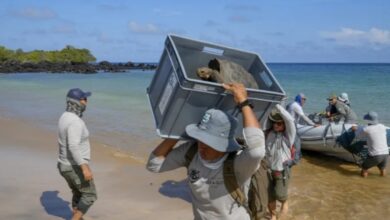CAN Eliminates the Use of Roaming: How Will It Work?
After the CAN eliminated the use of roaming, all Colombians, Peruvians, Ecuadorians, and Bolivians who travel to any of these countries will be able to use their telephone line without having to worry about international rates.

According to the CAN, this initiative will benefit more than 111 million people who have the nationality of some of these four States. Photo: Pixabay
LatinAmerican Post | Christopher Ramírez Hernández
Listen to this article
Leer en español: CAN elimina el uso del roaming: ¿cómo funcionará?
The Andean Community of Nations (CAN) took another step to achieve true equity and brotherhood among its members (Colombia, Peru, Bolivia, and Ecuador) by eliminating the obligation of roaming service for all people with passports from said territories and who decide to move through one of these countries.
According to the CAN, this initiative will benefit more than 111 million people who have the nationality of some of these four States.
What is roaming?
Translated into Spanish as 'roaming', data roaming is nothing more than the possibility that people have to continue connected to a telephone and internet service even far from the original network of the operator with which they have contracted said services. In short, it is being able to stay connected even far from the country of origin.
However, the fact of continuing to be part of the digital world while away, whether for vacations or work, does not include the right to enjoy all these benefits without paying a value. When a person leaves their country, they must immediately opt for a roaming service that, depending on their use and the territory they are going to, will mean paying some extra charges that will be reflected in the invoice of their operator.
In addition, the value of this service may also vary depending on the agreements that an operator has with the network that the customer decided or could use abroad.
You can also read: The Best Governments In Latin America In 2021
How will the cancellation of roaming work in the CAN?
According to official information from the CAN, this measure, which will take effect on January 1, is clear: none of the inhabitants of any of the four-member countries will have to pay any extra surcharge while using their telephone line and data. of the internet in these territories.
For example, when a Colombian travels to Bolivia, Peru, or Ecuador, he will have the benefit of using his cell phone under the same terms and rates agreed with his operator in Colombia. Thus, although you will use the mobile networks available in the country you are visiting, the service (in economic terms) will be exactly the same as the one you use in your country of origin.
It should be noted that this measure will apply only to postpaid lines, that is, those who have prepaid plans will have to pay the extra rates that their operator charges them during the visit abroad.
"This historic decision contributes to the efforts of the countries of the Andean Community to close the digital divide and fulfill the founding principle of our organization, which is to improve the quality of life of Andean citizens," explained the secretary-general of the CAN, the Colombian Jorge Hernando Pedraza.
En @BluRadioCo, el jefe del organismo, @JHPedraza, destacó que gracias a la Decisión 854 aprobada por los cuatro países miembros, desde el 01 de enero de 2022 se aplicarán las mismas condiciones o planes tarifarios que el país de origen por los servicios de voz, SMS y datos.
— Comunidad Andina (@ComunidadAndina) December 29, 2021
Now, to prevent this benefit from being abused by citizens, the CAN established a series of rules with which to regulate the non-use of roaming and that in this way both users, telephone companies, and governments can win.
According to Decision 854 agreed by the member countries of the group on February 19, 2020, the cancellation of roaming will only be valid for 90 days for each person, which will begin to be counted from the first moment in which a person makes use of the foreign network to stay connected by telephone or on the network.
Likewise, it must be verified that the line that the citizen uses is permanently used by him in the country of origin, in addition to the fact that he must prove that his address is in that country.
For example, if a Peruvian travels to Bolivia, he will know that he has the free-roaming service in Bolivian territory for a period of no more than three months, as long as he shows that the line he will use is registered with an operator in Peru. and that he also lives permanently in that country. In this way, the use of this benefit is limited to nationals of these countries and any foreigner who is just passing through the region is prevented from taking advantage of this regional aid.
It should be remembered that the Andean Community is the oldest system in South America, with a duration of 52 years, since its foundation on May 26, 1969. In addition to the member countries, there is also the participation of Argentina, Brazil, Chile, Paraguay, and Uruguay as partner countries and Spain as an observer country.




